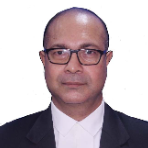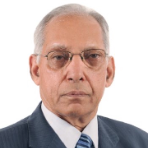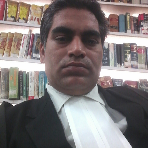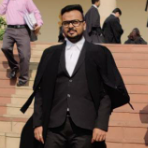Supreme Court Lawyers
Supreme Court Lawyers
Supreme Court Lawyers
When people face defeat in the lower courts, they look up to the High Courts and the Supreme Court full of hopes. More than judges, the legal professionals play a crucial role in deciding a case in the court. This makes Supreme Court advocates of utmost importance for justice through the apex court in India. They have to pass the Supreme Court’s Advocate on Record examination in order to qualify as a practising Supreme Court lawyer in India.
One may find the Supreme court lawyers list associated with Vidhikarya on this page. Contacting Supreme Court lawyers is needed in scenarios including and not limited to the following:
- When it is an appeal against the High Court’s decision
- When there is a question of law at stake
- Appeals against civil, criminal or tribunal decisions
- When it is an infringement of fundamental rights (Part III of Constitution of India, 1950)
- When it is a Special Leave Petition (Article 136 of Indian Constitution)
- When it is a dispute with the government
People often reach out to Supreme Court lawyers when the matter in the lower courts is of no avail, the only option left is the Supreme Court or sometimes a High Court too. In such cases, legal advice from former advocates leads parties to decide on whether to approach Supreme Court advocates in India or just accept the judgement. Consultation with expert lawyers in Supreme Court can help with the confusion as well.
FAQs for Supreme Court Lawyers
Q- How to consult with lawyers in the Supreme Court?
A- Whenever a common man needs to contact and have a conversation with Supreme Court advocates in India, knowing the case history which is being appealed in the apex court is inevitable. Accompanying the case file is a must whenever contacting a Supreme court lawyer so that everything is on the table when the legal professional needs it. This way, getting the crux of the ground to appeal in the apex court is easier for the advocate of Supreme Court.
Q- How much do Supreme Court lawyers earn?
A- In order to practice in the hon’ble Supreme court, lawyers have to prove their ability through experience, Bar exam and then the Advocate on Record (AOR) exam conducted by the apex court itself. With so much work, they tend to be paid in accordance with their hard work and expertise. Experience and success rate add to how much Supreme Court lawyers make. It varies among individual professionals as well. For example, for some cases, famous Supreme court lawyers might charge in lakhs, while in others, they might not charge a single penny (pro-bono cases). Thus, there is no standardised rule and advocates in Supreme court charge as per their free will.
Q- Where is the Supreme Court of India located?
A- The hon’ble Supreme court of India is located in the national capital, i.e. New Delhi. There has been buzz around the Supreme Court to have regional benches in other states of the country. However, no such decision has been made till date.
Q- What is Supreme Court lawyer fees?
A- The lawyers fees for the Supreme Court is not a fixed amount. However, cases reaching the apex court are of utmost importance and there is no scope for appeals. In addition, matters at the Supreme Court involve in-depth understanding of the existing laws or it may lead to making a new law. Thus, Supreme Court lawyers in India charge comparatively higher. There are some of them who take up pro-bono cases as well (without any fees).
Q- The first woman lawyer who became the judge of the supreme court of india is….?
A- Justice Indu Malhotra was the first woman lawyer to be directly elevated to the Supreme Court as a judge.
Q- Can a lawyer directly practice in the Supreme Court?
A- No, there are some rules in this regard depicting who can practise as a Supreme Court lawyer in India. The Supreme Court Rules, 2013 lay that only those advocates who have cleared the Advocate on Record (AOR) exam conducted by the Supreme Court of India. There are several qualifying conditions for Supreme court Advocates on Record including experience of 4 years, practice at the High Court, training, etc. Thus, directly practising at the apex court just after completing legal studies is not practicable.

Area of Practice
- Civil
- Criminal
- Domestic Violence
- Military Laws
- Corporate and Incorporation

Area of Practice
- Commercial
- Will
- Trust and Society (NGO)
- Sexual Harassment at Workplace
- Corporate and Incorporation

Area of Practice
- Real Estate
- Property
- Human Rights
- Civil

Area of Practice
- Commercial
- Property
- Advertising
- Consumer Protection
- Criminal

Area of Practice
- Commercial
- Contracts and Agreements
- Intellectual Property, Copyright, Patent, Trademar
- Arbitration and Mediation
- Insurance

Area of Practice
- Divorce
- Criminal
- International Laws
- Property
- Corporate and Incorporation

Area of Practice
- Contracts and Agreements
- Bankruptcy and Debt
- Civil
- Commercial
- Criminal

Area of Practice
- Criminal
- Civil
- Family
- Military Laws
- Property

Area of Practice
- Civil
- Criminal
- Consumer Protection
- Human Rights
- Debt Collection

Area of Practice
- Criminal
- Civil
- Anticipatory Bail
- Arbitration And Mediation
- Divorce
Request a Callback for Legal Help
In case you want us to call you back to understand your legal problem then please submit your details with a brief description of the legal issue that you have. We will call you back.
Successful
Your Request has been successfully taken. We will contact you soon. Thank you !

